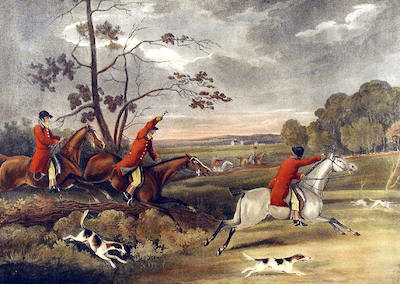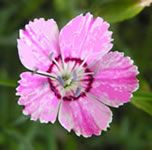Trying to prevent gun violence by tying it to mental health legislation began in 1966 when a young gunman killed 16 people in Austin, Texas. But some believe the approach is misguided.
in the pink MAINLY HUMOROUS
in very good health
Wall Street hopes flotation of the 'new Google' will help battered stock marketRichard Wray
Monday August 13, 2007
The GuardianA Californian technology company US investors are already dubbing "the new Google" will this week finalise the price of its shares in one of the US market's most eagerly awaited flotations since the dotcom boom.
After just over a week of investor road shows, VMware, based in Palo Alto, has already raised the price expected in its flotation on the New York Stock Exchange to between $27 (£13.40) and $29 from its original forecast of $23 to $25. At those levels the company could be worth more than $10bn. But some analysts on Wall Street believe the stock could rise to $40 or more at its opening, which could come as early as today.
VMware is majority owned by the US data storage and security group EMC, but leading technology companies have recently been buying stakes. Last month Intel spent $218.5m buying shares that will give it a 2.5% stake in the business after the flotation. The internet networking company Cisco then bought 6m shares in the company for $150m, also giving it a small stake. The company has been cited by Microsoft as a potential competitor and at one point was seen as a possible takeover target for the software market leader.
VMware is at the forefront of a new segment of technology called virtualisation. Rather than having software installed on an individual computer or server, where it is often vulnerable to viruses and other forms of attack unless updated regularly, virtualisation separates the hardware from the software. This means one computer or server can run various different programs - even operating systems - on the same machine.
It is an updated version of the application service provider (ASP) model, which was popular in the dying days of the last dotcom boom. But while the ASP model meant merely hosting a personal computer's software on servers on the internet, virtualisation software actually sits between a computer or server's operating system and the actual hardware. As a result, sensitive parts of any system can be partitioned so that viruses and other "malware" cannot infiltrate.
The "virtual" machine that is created can then be easily transferred between different computers, letting companies provide staff who "hot desk" or travel with secure access to exactly the same programs anywhere in the world.
The technology makes it cheaper for large companies to run their IT systems as servers that may sit idle for hours or be under-utilised at specific times can be used for several different purposes at the same time.
Virtualisation is also a hot topic for companies that supply major organisations with their IT networks, as these organisations are able to shift virtual machines around the world only if they have designed their networks correctly.
VMware was founded in 1998 and bought by EMC six years later. It has more than 3,000 employees and counts all of the Fortune 100 companies among its clients. Last year it made revenues of $704m and is expected to make well over $1bn this year as sales increase.
In last month's second-quarter figures from EMC, VMware reported revenues for the three months to the end of June of $296.8m, up from $156.4m in the same period in 2006. The company reckons it will make about $870m from the flotation and will use $350m to pay off debt it owes EMC.
A successful flotation of VMware would be a major boost to the US stock market, which has been battered over the past weeks by the turmoil in the international credit market. VMware has Citigroup, JP Morgan and Lehman Brothers as the lead underwriters for the offering.
(The Phrase A Week)
in the pink
MeaningIn perfect condition, especially of health.
Origin
The general usage of this phrase has altered somewhat since it first entered the language. We now usually see it with the specific meaning of 'the pink of condition', i.e. in the best possible health. It is tempting but, as it turns out, misguided, to assume an association between 'the pink of condition' and the healthily glowing pink cheeks of new-born babies or energetic sportsmen/sportswomen and the like.
The earliest citations of 'in the pink' are from the 16th century and, at that time, the meaning was 'the very pinnacle of something', but not necessarily limited to health. The earliest example that I can find of pink being used with that meaning is from 1597 Shakespeare's Romeo & Juliet, 1597:
Mercurio: Why, I am the very pinke of curtesie.The earliest citation I've found for 'in the pink' is from Leigh's Kensington Gardens, 1720:
"'Tis the Pink of the Mode, to marry at first Sight: - And some, indeed, marry without any Sight at all."It isn't until the 20th century that we find the phrase in the 'pink of condition' form that is currently used, in the Kynoch Journal, 1905:
"Makers may despatch explosives from the factory in the pink of condition."
 So, what's special about pink? The association of the phrase 'in the pink' with the so-called pink jackets worn by the UK fox-hunting aficionados is unproven. The jackets, which are in fact scarlet, have been said to have derived their 'hunting pink' name from a tailor called Thomas Pink and that 'in the pink' refers to both the jackets and to the healthy, energetic approach to the pastime that many hunters adopt. Fox-hunters can be said to be literally in the pink but the hunting derivation is nevertheless far-fetched. There are no historical records of any such Thomas Pink and his association with the fox-hunting fraternity wasn't suggested until long after the first references to pink jackets.
So, what's special about pink? The association of the phrase 'in the pink' with the so-called pink jackets worn by the UK fox-hunting aficionados is unproven. The jackets, which are in fact scarlet, have been said to have derived their 'hunting pink' name from a tailor called Thomas Pink and that 'in the pink' refers to both the jackets and to the healthy, energetic approach to the pastime that many hunters adopt. Fox-hunters can be said to be literally in the pink but the hunting derivation is nevertheless far-fetched. There are no historical records of any such Thomas Pink and his association with the fox-hunting fraternity wasn't suggested until long after the first references to pink jackets. Why pink has been chosen to epitomise the pinnacle of quality is more likely to do with the Dianthus flower, many varieties of which are called Pinks. It is known that society in the reign of Elizabeth I admired the flowers, hence the first uses of pink with the 'excellent' meaning in that period.
 What is interesting to speculate on is why the flowers were called Pinks. You may think that a silly question, as Dianthuses are almost always pink in colour. There are two quite believable theories. One suggests that it is the flowers that gave their name to the colour, rather than vice-versa, and that the name derives from the Dutch 'pinck-ooghen' - 'little eye' (literally - to blink). The second theory is based on the earlier verb form of pink, which means to cut or to pierce material - in a style that would now be done using pinking shears. Dianthuses are said to be called Pinks because their edges are pinked. Take your choice.
What is interesting to speculate on is why the flowers were called Pinks. You may think that a silly question, as Dianthuses are almost always pink in colour. There are two quite believable theories. One suggests that it is the flowers that gave their name to the colour, rather than vice-versa, and that the name derives from the Dutch 'pinck-ooghen' - 'little eye' (literally - to blink). The second theory is based on the earlier verb form of pink, which means to cut or to pierce material - in a style that would now be done using pinking shears. Dianthuses are said to be called Pinks because their edges are pinked. Take your choice. See also: tickled pink and painting the town red.
The Phrase A Week newsletter goes out to 59,000 subscribers (43,500 by e-mail, 15,500 by RSS feed).
沒有留言:
張貼留言